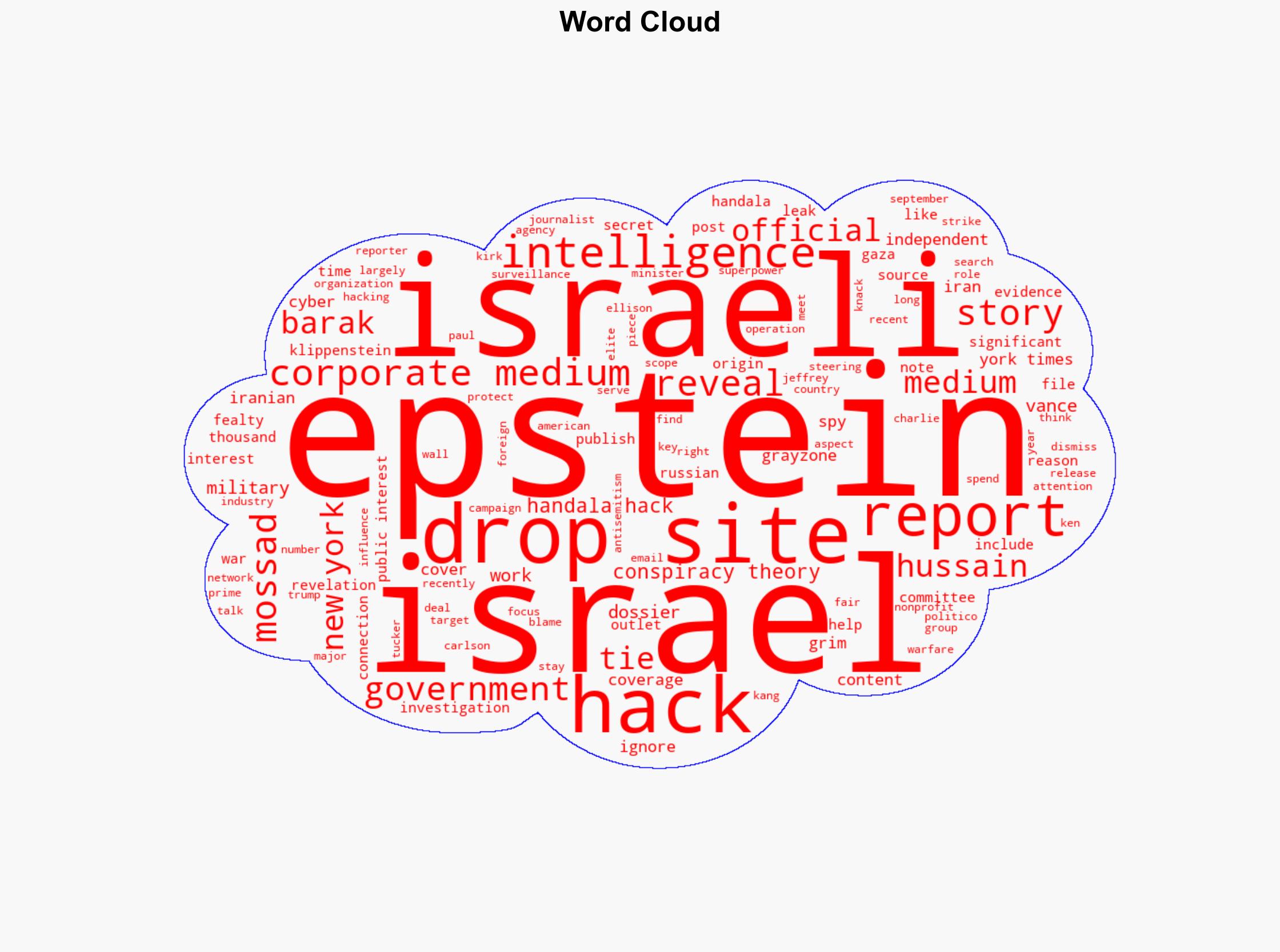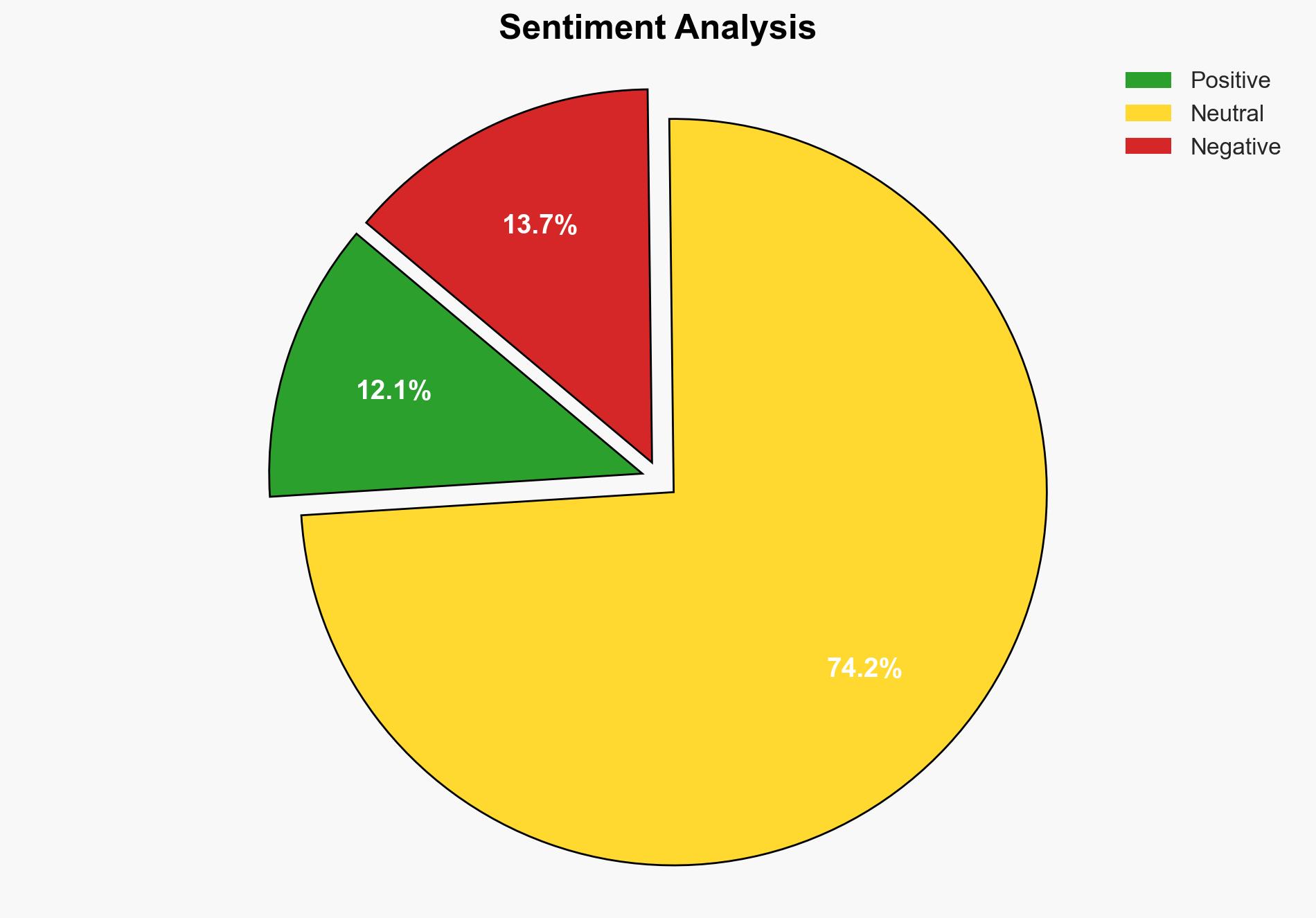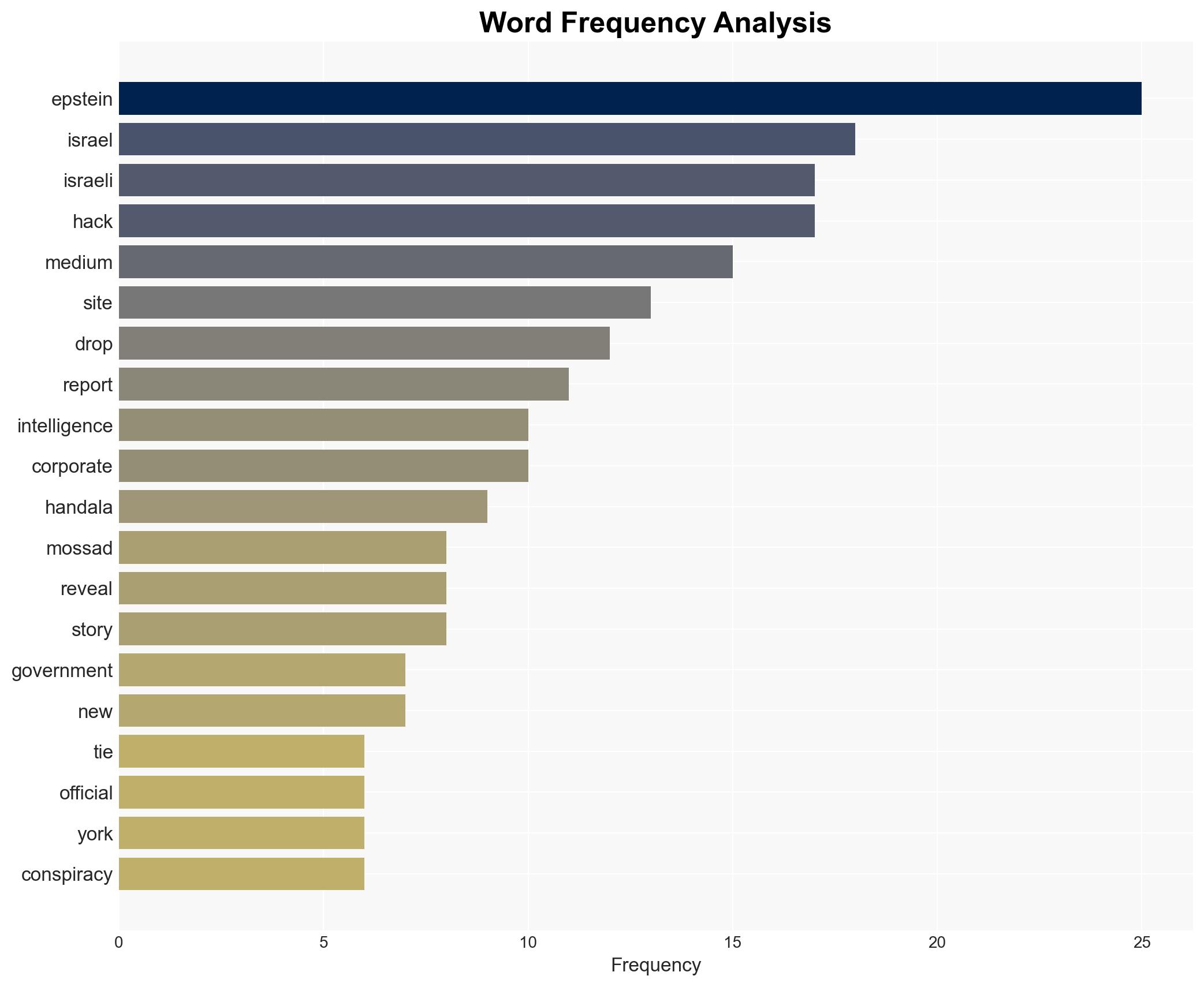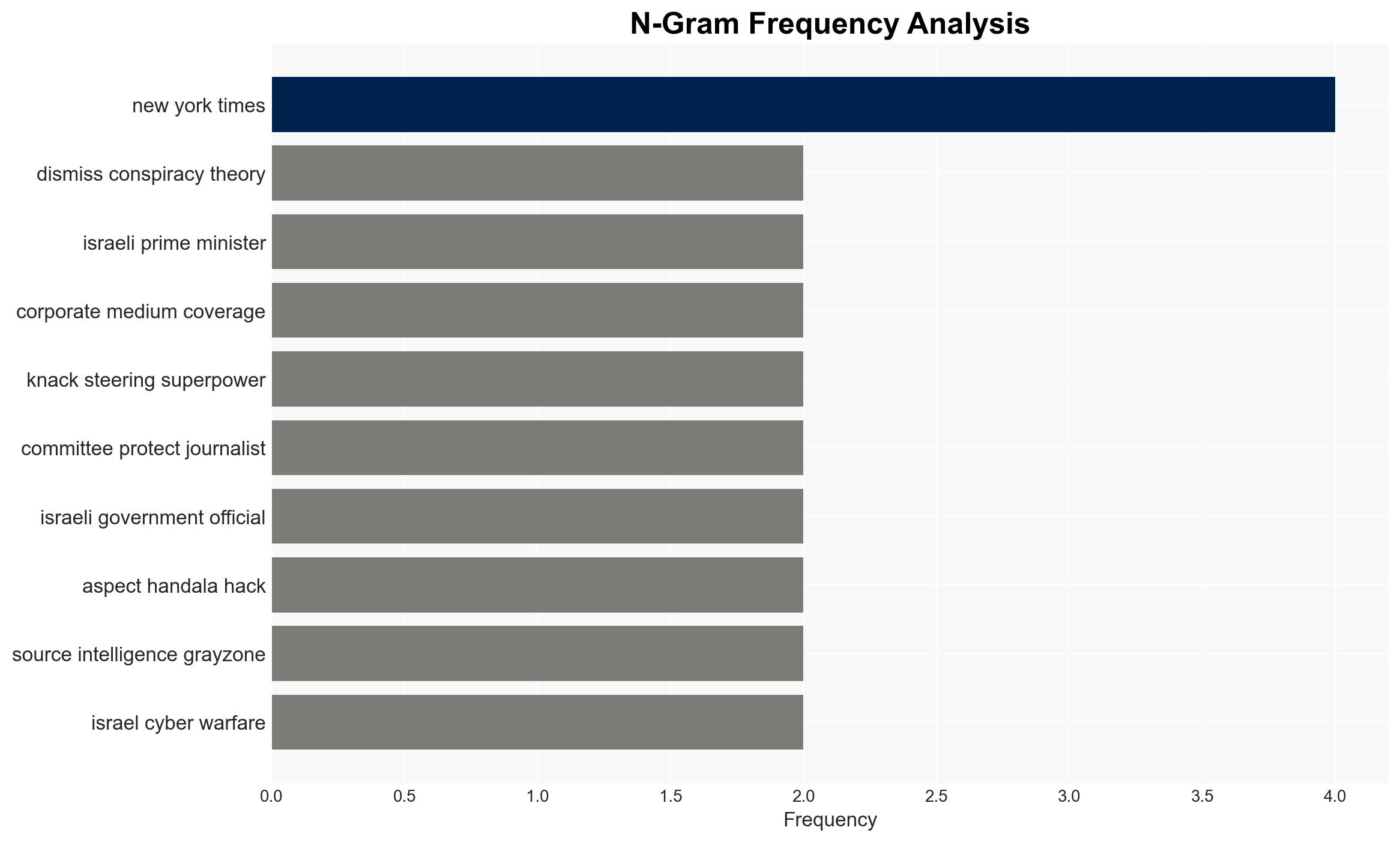Evidence of Epstein Ties to Mossad Grow But Corporate Media Doesn’t Seem to Care – FAIR
Published on: 2025-11-15
AI-powered OSINT brief from verified open sources. Automated NLP signal extraction with human verification. See our Methodology and Why WorldWideWatchers.
Intelligence Report:
1. BLUF (Bottom Line Up Front)
There is moderate confidence that Jeffrey Epstein had connections with Israeli intelligence, potentially involving Mossad, which may have facilitated his influence in cyber warfare and surveillance technologies. The most supported hypothesis is that Epstein leveraged his network to advance Israeli interests, although the extent and nature of these ties remain uncertain. It is recommended to increase scrutiny of cyber and intelligence collaborations involving Israeli entities and to monitor media narratives for potential bias or misinformation.
2. Competing Hypotheses
Hypothesis 1: Jeffrey Epstein had significant ties with Mossad and used his connections to broker deals that advanced Israeli intelligence and cyber capabilities.
Hypothesis 2: Epstein’s alleged ties to Mossad are exaggerated or unfounded, serving as a narrative constructed by certain media outlets to sensationalize his connections and distract from other geopolitical issues.
The first hypothesis is more likely given the detailed reporting on Epstein’s interactions with Israeli officials and his involvement in cyber technology deals. However, the lack of corroboration from mainstream media and the potential for bias or misinformation necessitate caution.
3. Key Assumptions and Red Flags
Assumptions: The information from independent media outlets is accurate and not influenced by bias. Epstein’s connections with Israeli officials were significant and not merely coincidental or overstated.
Red Flags: The dismissal of these ties by major media outlets like The New York Times could indicate either a lack of evidence or a deliberate downplaying of the issue. The involvement of far-right figures in promoting these narratives raises the risk of bias and misinformation.
4. Implications and Strategic Risks
Potential implications include increased scrutiny on Israeli intelligence operations and their collaborations with foreign entities, which could strain diplomatic relations. Cybersecurity risks may escalate if Epstein’s involvement in cyber warfare technologies is confirmed, potentially leading to retaliatory cyber actions by affected nations. The narrative could also fuel antisemitic sentiments if not carefully managed.
5. Recommendations and Outlook
- Conduct a thorough investigation into Epstein’s connections with Israeli intelligence to ascertain the extent and impact of these ties.
- Enhance monitoring of media narratives to identify and counter misinformation or bias.
- Best-case scenario: Clarification of Epstein’s ties leads to improved cybersecurity protocols and international cooperation.
- Worst-case scenario: Escalation of cyber conflicts and diplomatic tensions due to misinterpretation or exploitation of the narrative.
- Most-likely scenario: Continued media scrutiny and investigation, with incremental revelations impacting public perception and policy.
6. Key Individuals and Entities
Jeffrey Epstein, Naftali Bennett, Ehud Barak, Viktor Vekselberg, Yoni Koren
7. Thematic Tags
Cybersecurity, Intelligence, Media Bias, Geopolitics, Misinformation
Structured Analytic Techniques Applied
- Adversarial Threat Simulation: Model and simulate actions of cyber adversaries to anticipate vulnerabilities and improve resilience.
- Indicators Development: Detect and monitor behavioral or technical anomalies across systems for early threat detection.
- Bayesian Scenario Modeling: Quantify uncertainty and predict cyberattack pathways using probabilistic inference.
- Network Influence Mapping: Map influence relationships to assess actor impact.
- Narrative Pattern Analysis: Deconstruct and track propaganda or influence narratives.
Explore more:
Cybersecurity Briefs ·
Daily Summary ·
Support us
·





